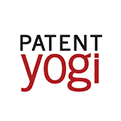With hackers taking a more prevalent role in media headlines and companies accessing personal data without consent, it is not surprising that data protection has become an integral part of conversation in most businesses.
Cyber security is not a new phenomenon. John McAfee founded his computer security software in 1987, but as technology has improved, so has that ability of hackers to break into it. Unfortunately, in a business environment, cyber hacking is not the most damaging threat. Employees could be both willingly and unwillingly handing over personal data without even realizing it.
Compromising your digital security is often not done with malice, but by accident. On the rare occasion that malice does come into play, it can be investigated through employee misconduct forensics where the individual will face the consequences of their actions.
More often than not, it is the small things that can affect the security of your company’s data. Below are a few examples.
Poor Passwords
So many people fall foul to poor password practice. Often it is due to using the same password for multiple accounts, or for refusing to change a password out of fear of forgetting it. It can take as little as ten minutes for someone to break into a 6-letter lowercase password, so all it takes is for one employee to be using the word ‘password’ as their password, and the entirety of your business’s secrets could be open to whoever wants them.
Poor passwords can be easily rectified by setting up some easy rules: include capital and lower case letters, numbers, symbols and ensure that they are a minimum of 9-characters long.
Dangerous Downloads
Having a corporate computer network is a fantastic tool until someone accidently downloads an app that they shouldn’t have and viruses come pouring out. It is very unlikely that when given access to such a network that the virus will be contained to just their computer, so your entire network is at risk.
Simple blocks such as virus scanners can, of course, prevent this from happening while backing up your data. If a virus manages to cause untold damage to your network, those extra few minutes you took to back your work up at the end of every shift will be invaluable.
Sneaky Spam
Spam emails are no longer the obvious phishing scams they once were — they have become smarter. They are often hard to spot, particularly if they have gotten hold of a name from your address book and you unwittingly open it expecting it to be the monthly report you were after.
Knowledge is power in the case of spam emails. Naturally your email spam filter will catch most of them, but it is important to educate people on the formats of the ones that slip through.
Protection Policies
Giving every employee the ability to access all areas of your network might seem like a good idea in theory, but from a security standpoint it is a massive faux pas. Limit your employees’ access to as and when they need it. Be particularly careful with previous employees who might still have access and remove them from company accounts so that you can keep your data safe and not put your business at risk.


